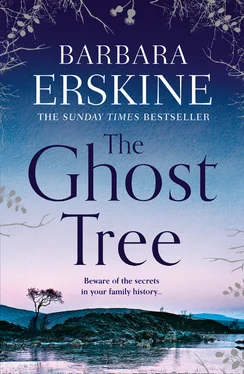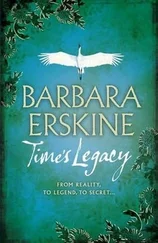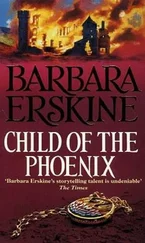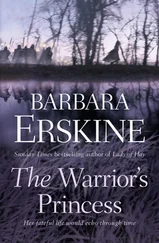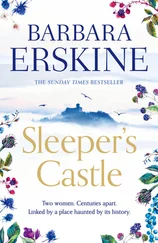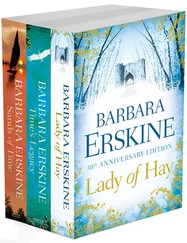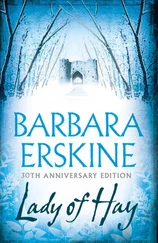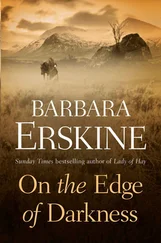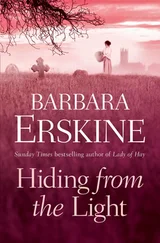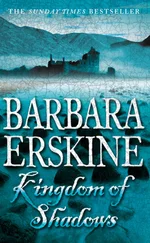1 ...8 9 10 12 13 14 ...30 Slowly she walked on. Thomas had lived at the top of a lofty tenement in somewhere called South Gray’s Close. She glanced at the address on the piece of paper in her hand. She had looked it up on the Internet that morning. It was next to the Museum of Childhood. The actual building in which he had lived had long ago disappeared, it seemed, but there had been a plaque there once, marking the place where Tom and his brother Henry had been born. She came to a halt outside the entrance to the close. There was the rounded archway. Did she remember that from her dream? She thought so, but more than that, she wasn’t sure. Everything had been dark then, save for the warm rooms briefly lit by the setting sun before the black rain clouds had swept in. There was graffiti now where, presumably, the plaque had once been. The memory of Thomas and his family in Gray’s Close had vanished with her dream.
On her return to Number 26 Ruth went back to her slim file of notes and the Internet. She moved the cursor across to the portrait of Thomas and studied it carefully. He had short wavy dark hair and deep-set piercing eyes. The reproduction was poor; it was dark and hard to make out the detail. She clicked on it. The picture had been painted by Thomas Lawrence in 1802, when Thomas was fifty-two years old.
Sitting back in her chair she thought for a moment, then she rummaged in the zipped pocket of her bag for the portrait miniature. Was it him? The face staring out at her was very different to the arrogant, powerful, quite modern face on the screen. For a start the man in the miniature was wearing an old-fashioned white powdered wig; he was half smiling and he appeared to be very young. She narrowed her eyes, holding it under the light. The glass reflected badly and the picture was, she realised now, very crude in its execution. She dipped back into her bag to bring out the locket. The lock of hair could have belonged to anyone. A woman? Someone from another family altogether? She ran her finger across the glass. She badly wanted to touch the hair. The small oval of glass which held it in place felt loose. She squinted at it, angling it this way and that under the light. Could she prise it off? And if she did, would the hair reveal in some mysterious way the identity of its owner?
She picked up the miniature again, wondering why she assumed everything she had found was to do with that one man, as if he was the only ancestor her mother had. But that was her father’s fault, she realised. He was the one with the obsession. It was as if the name, the title, had got under his skin as a personal insult.
Whoever the lock of hair and the miniature had belonged to they had been very precious. With a shiver she dropped them on the table. The thought that the touch of that hair might directly link her to the person from whose head it had been taken felt suddenly like witchcraft.
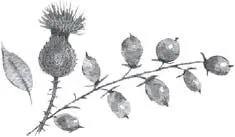
It was the sennachie who first told me I was special. He had come to teach my eldest brother, David. The sennachie is the holder of the family story, the keeper of the genealogy, the remembrancer of all that makes a clan or a family great. We, the Erskines, he said, are both a Highland family and a Lowland clan. That is strange and special and he told us that our name comes from the skein, the little knife that appears on the family crest.
I was there, listening, only about five years old at the time, as the old man talked to my brother of traditions and legends of the earls of Buchan and of their forefathers the earls of Mar, going back to time before time.
There was another boy watching and listening there with us. Not Harry; he had gone out with Mama, and I asked the boy who he was. He said his name was David and he was my brother, the eldest, and he was six.
The sennachie frowned when I mentioned the boy and my big brother told me to be quiet as he could see no one there. The old man reprimanded him and said this other boy, who had joined us so silently and so suddenly, was the eldest brother to both of us, another David, who had died as a wee boy of six and who had come to hear the story of his ancestors.
The sennachie said I had the gift of second sight.
Later Mama told me we had indeed had a brother who had died; as the oldest son he had been named for Papa, but after he had died Papa had given David, our David, who had been their second son, his name and his title as the eldest son of Lord Cardross; before that David had been called Steuart after Mama’s family. I was confused. I didn’t understand any of this and my brothers were angry with me. They had both known the first David when they were all little together and missed him after he died and David was cross because he felt his name was not his own.
Mama said I must not tell anyone that I could talk to those who had died.

James Reid showed Ruth into his office and pulled out the chair for her. ‘I have news for you,’ he said as he sat down opposite her. ‘I am pretty sure your Mr Bradford is a fake.’ He smiled triumphantly. ‘I called the firm who appeared to have drawn up your father’s new will. Cautiously, you understand. There’s a certain procedure to be followed here. The name at the bottom of the will is that of a genuine solicitor and I asked to speak to her. It turns out she’s away on maternity leave. She wasn’t working when the will was drawn up and when contacted she had never heard of Timothy Bradford or your father, and neither, incidentally, had the young man who is filling in for her.’
‘Oh, thank goodness!’ Ruth couldn’t hold back her exclamation of relief. James Reid’s phone call that morning had filled her with foreboding.
He took off his spectacles and rubbed them thoughtfully with a handkerchief. ‘That would seem to be the end of your problem, but it leaves one or two unanswered questions. Firstly, is it possible that Bradford actually is your father’s son? And secondly, whether he is or not, if he has stolen property from your father’s house you would want it back.’ He put his glasses back on. ‘In the case of the first problem, you would probably be quite happy if he disappeared and was never seen again, thereby proving he is a liar. In the second, I’m sure you would prefer to retrieve your mother’s possessions if it’s at all possible before he disappears forever. Either way, he is almost certainly a thief and you are entitled to call in the police.’
Ruth slumped back in her chair. ‘How would we find him?’
‘There’s an address on the will. I doubt if it’s real, but it must provide some way of contacting him about his supposed inheritance.’ He looked down at the papers in front of him. ‘It’s my belief that we’re dealing here with a man of fairly limited intelligence. He must have realised that we would find out the will was a fake almost at once.’
‘But he didn’t know there was anyone to query it,’ Ruth pointed out.
‘That’s true,’ James said slowly. ‘So, what would you like me to do?’
‘How long have we got before he gets suspicious?’ Ruth leaned forward, her brow furrowed. ‘I want him to go away; I want him to leave me alone; but I don’t want to spook him into destroying anything he might have taken. To be honest, I really don’t know if he’s taken anything at all; that’s the problem. I remember my mother mentioning pictures and portraits and silver, and there’s nothing like that in the house. But it could have been my father who got rid of them.’ She looked at him helplessly.
Читать дальше
